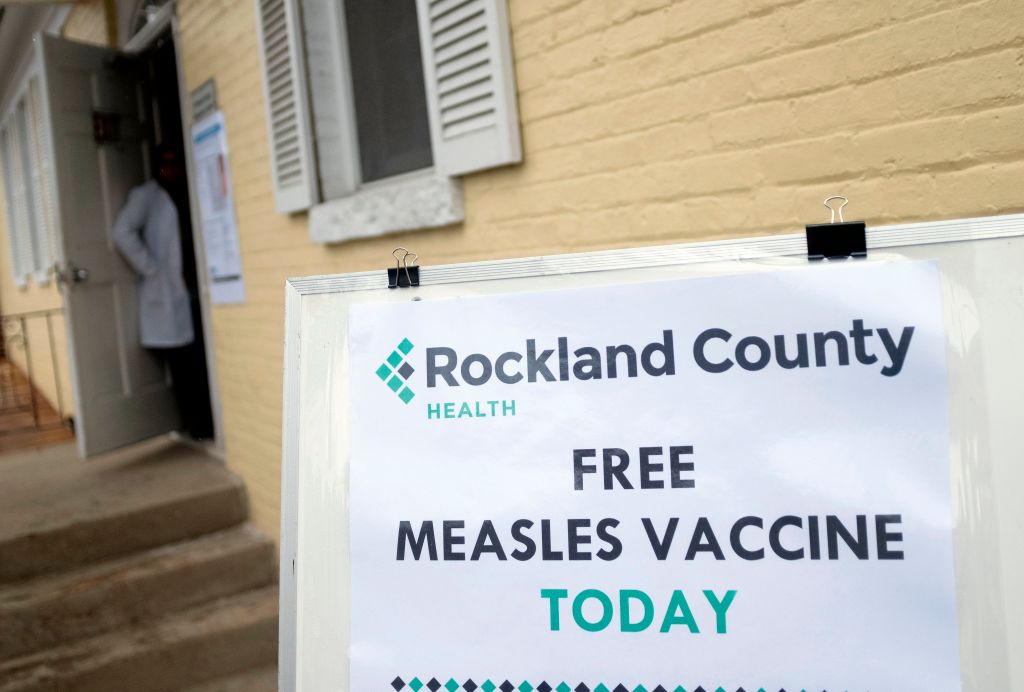Amid concerns that a measles-infected person may have exposed tens of thousands of others to the virus at a Kentucky public gathering, the Centers for Disease Control and Prevention (CDC) is urging people to get themselves vaccinated at the earliest.
In a statement issued Friday, the agency said the Kentucky Department of Public Health has found a confirmed case of measles in an unvaccinated person, who attended the event on Feb. 17 and 18 at Asbury University in Wilmore. The event hosted at least 20,000 people, who were traveling from other states and even internationally.
“If you attended the Asbury University gathering on February 17 or 18 and you are unvaccinated or not fully vaccinated against measles, you should quarantine for 21 days after your last exposure and monitor yourself for symptoms of measles so that you do not spread measles to others,” the CDC said in its advisory.
The public health emergency led the state to join hands with Asbury University, Jessamine County Health Department, and the CDC to halt the further spread of the virulent pathogen. Asbury University said the unidentified person didn’t know they had contracted measles until after they attended the festival.
CDC noted that measles can get contagious four days before the suggestive red patches start surfacing. It remains to be determined how many persons were infected or if an outbreak is likely.
“Measles is extremely contagious and can cause life-threatening illness,” CDC said in its advisory. “Anyone who is not protected against measles is at risk. An unvaccinated person can get measles when traveling abroad or in the U.S.”
The situation triggers a flurry of questions in people’s minds as much as it stirs panic. So, for some clarity, CNN spoke to Medical Analyst Dr. Leana Wen of George Washington University Milken Institute School of Public Health, who also has a history of overseeing the city’s immunization and infectious disease investigations. In her statement, Wen doubled down on CDC’s claim that measles is contagious as well as life-threatening at times.
Wen said the disease is notorious for killing a large number of children annually, which she said disputes the credibility of the MMR vaccine. At the onset of measles, a person will experience recurring fever, rash, cough, and red eyes. One is expected to contract the disease via the droplets traveling from an infected person’s nose, throat, or mouth when they cough or sneeze. And if the droplets land on a surface that you touch before touching your nose or mouth, you stand to infect yourself.
The disease starts manifesting its first symptoms 10-12 days after contraction. A person is likely to have a fever, flat red spots almost all over the body, runny nose, and conjunctivitis at the onset of the disease. One out of every 20 children with measles will get pneumonia, with about one in 1,000 contracting encephalitis, which leads to swelling of the brain that can lead to seizures and leave the child disabled for life, CNN reported.
As of now, there hasn’t been any specific cure for measles, but patients have largely been given antibiotics, vitamin A supplementation, and post-exposure vaccination as part of the initial stages of treatment.
















